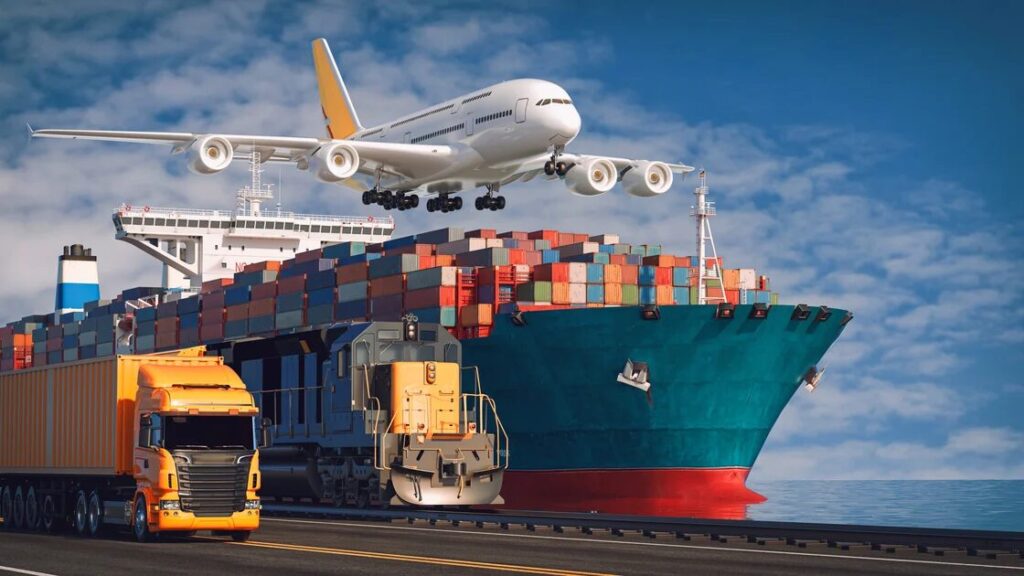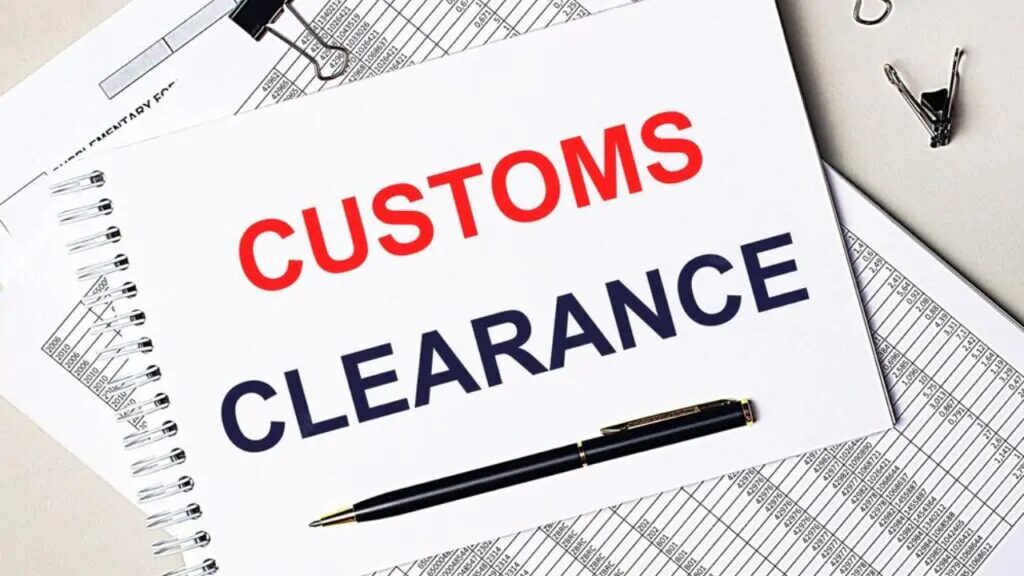China and Israel are two countries that have a lot of trade and cooperation in various fields, such as technology, agriculture, defense, and tourism. According to the World Bank, China was Israel’s third-largest trading partner in 2019, with a total trade volume of $11.1 billion. Israel was also China’s 11th-largest trading partner in the Middle East and North Africa region.
Why choose China for shipping to Israel?

There are many reasons why you might want to choose China for shipping to Israel, such as:
- China has a large and diverse manufacturing base that can produce almost any kind of product you need, from electronics and machinery to textiles and furniture.
- China has a well-developed logistics infrastructure that can facilitate the transportation of goods to various destinations around the world, including Israel.
- China has a competitive pricing advantage that can help you save costs and increase your profit margin.
- China has a friendly and cooperative relationship with Israel that can foster mutual trust and benefit in trade and business.
Understanding the shipping process from China to Israel
The shipping process from China to Israel can vary depending on the type of goods, the shipping method, and the specific requirements of the importer and exporter. However, a general overview of the process is as follows:
- The exporter in China prepares the goods for shipment and packs them according to the standards and regulations of the destination country.
- The exporter in China obtains the necessary documents and certificates for the shipment, such as the commercial invoice, the packing list, the bill of lading, the certificate of origin, and the inspection certificate.
- The exporter in China arranges the transportation of the goods to the port of departure in China, either by road, rail, or air.
- The exporter in China clears the customs at the port of departure and pays the export duties and taxes, if applicable.
- The shipping company or freight forwarder loads the goods onto the vessel or aircraft and transports them to the port or airport of arrival in Israel.
- The importer in Israel clears the customs at the port or airport of arrival and pays the import duties and taxes, if applicable.
- The importer in Israel arranges the delivery of the goods to the final destination, either by road, rail, or air.
Shipping methods for China to Israel

There are two main shipping methods for China to Israel: sea freight and air freight. Each method has its own advantages and disadvantages, depending on the factors such as the nature, volume, weight, value, urgency, and budget of the shipment. Here is a brief comparison of the two methods:
- Sea freight: Sea freight is the most common and economical shipping method for China to Israel, especially for large and heavy shipments that are not time-sensitive. Sea freight usually takes about 20 to 40 days from China to Israel, depending on the route and the carrier. Sea freight can be divided into two types: full container load (FCL) and less than container load (LCL). FCL means that the exporter rents a whole container for the shipment, while LCL means that the exporter shares a container with other shippers. FCL is more suitable for large and regular shipments, while LCL is more suitable for small and irregular shipments.
- Air freight: Air freight is the fastest and most reliable shipping method for China to Israel, especially for small and light shipments that are time-sensitive or high-value. Air freight usually takes about 3 to 7 days from China to Israel, depending on the flight schedule and the carrier. Air freight can be divided into two types: express and cargo. Express means that the exporter uses a courier service such as DHL, FedEx, or UPS for the shipment, while cargo means that the exporter uses a cargo airline or a freight forwarder for the shipment. Express is more convenient and secure, but also more expensive, while cargo is more flexible and cost-effective, but also more complex and risky.
Customs and regulations for shipping to Israel

Customs and regulations are an important part of the shipping process from China to Israel, as they can affect the smoothness, speed, and cost of the shipment. Both the exporter and the importer need to comply with the customs and regulations of both countries, as well as the international conventions and agreements that govern the trade between them. Here are some of the main customs and regulations for shipping from China to Israel:
- Trade agreement: China and Israel have a free trade agreement (FTA) that was signed in 2019 and entered into force in 2020. The FTA aims to eliminate or reduce the tariffs and non-tariff barriers on the trade of goods and services between the two countries, as well as to enhance the cooperation in areas such as investment, intellectual property, e-commerce, and environment. The FTA covers about 95% of the bilateral trade volume and can save about $300 million in tariffs annually for both sides. To enjoy the preferential treatment under the FTA, the exporter and the importer need to provide the certificate of origin issued by the authorized agencies of both countries.
- Tariffs: Tariffs are the taxes levied by the customs on the imported goods based on their value, quantity, and classification. The tariff rates vary depending on the type and origin of the goods, as well as the trade agreement between the countries. According to the FTA, China and Israel have agreed to eliminate the tariffs on most of the industrial products and some of the agricultural products within 5 to 10 years. However, some products are still subject to tariffs, such as textiles, clothing, footwear, leather, furniture, ceramics, glass, and plastics. The tariff rates for these products range from 0% to 12% for China and from 0% to 30% for Israel. To check the tariff rates for specific products, you can use the online tools provided by the customs of both countries .
- Taxes: Taxes are the fees charged by the government on the imported goods based on their value, quantity, and classification. The taxes include the value-added tax (VAT) and the purchase tax. The VAT is a general tax that applies to most of the goods and services, while the purchase tax is a selective tax that applies to some of the goods that are considered luxury or harmful. The VAT rate for China is 13% for most of the goods and 9% for some of the goods, such as books, newspapers, magazines, and agricultural products. The VAT rate for Israel is 17% for most of the goods and services. The purchase tax rate for China varies from 0% to 45%, depending on the type of the goods, such as tobacco, alcohol, cosmetics, jewelry, automobiles, motorcycles, and yachts. The purchase tax rate for Israel varies from 0% to 100%, depending on the type of the goods, such as tobacco, alcohol, fuel, automobiles, motorcycles, boats, and aircraft.
- Documents: Documents are the papers or electronic files that provide the information and proof of the shipment, such as the identity, origin, destination, value, quantity, and classification of the goods. The documents are required by the customs of both countries for the clearance and inspection of the shipment, as well as for the calculation and collection of the tariffs and taxes. The documents include the commercial invoice, the packing list, the bill of lading, the certificate of origin, and the inspection certificate. The commercial invoice is the document that shows the details of the transaction between the exporter and the importer, such as the names, addresses, contact information, product descriptions, prices, terms of payment, and terms of delivery. The packing list is the document that shows the details of the packaging of the goods, such as the number, weight, volume, and marks of the packages. The bill of lading is the document that shows the details of the transportation of the goods, such as the names of the shipper, consignee, carrier, port of departure, port of arrival, date of shipment, and date of arrival. The certificate of origin is the document that shows the origin of the goods, such as the country of production, manufacture, or growth. The inspection certificate is the document that shows the quality, quantity, and conformity of the goods, such as the standards, specifications, and regulations that the goods meet.
Tips for successful shipping to Israel

Shipping from China to Israel can be a complex and challenging process, but it can also be a rewarding and profitable one if you follow some tips and best practices, such as:
- Plan ahead: Planning ahead is the key to successful shipping from China to Israel, as it can help you avoid delays
- Choose the right shipping method: Choosing the right shipping method for your shipment from China to Israel can help you save time, money, and hassle. You should consider the factors such as the nature, volume, weight, value, urgency, and budget of your shipment, as well as the availability, reliability, and security of the shipping method. You should also compare the pros and cons of sea freight and air freight, as well as the different types of services and carriers within each method. You can use online tools or consult with shipping experts to find the best shipping method for your shipment.
- Prepare the goods and documents: Preparing the goods and documents for your shipment from China to Israel can help you avoid problems, penalties, and delays at the customs. You should ensure that your goods are properly packed, labeled, and insured according to the standards and regulations of both countries. You should also obtain and provide the necessary documents and certificates for your shipment, such as the commercial invoice, the packing list, the bill of lading, the certificate of origin, and the inspection certificate. You should check the accuracy and completeness of the information on the documents and make sure they match the actual goods. You should also keep copies of the documents for your records and reference.
- Clear the customs: Clearing the customs for your shipment from China to Israel can help you receive or deliver your goods smoothly and legally. You should comply with the customs and regulations of both countries, as well as the international conventions and agreements that govern the trade between them. You should declare the goods and pay the tariffs and taxes, if applicable, at the port or airport of departure and arrival. You should also provide the documents and certificates for your shipment, such as the commercial invoice, the packing list, the bill of lading, the certificate of origin, and the inspection certificate. You should cooperate with the customs officers and answer their questions or requests. You should also be prepared for the possibility of inspection, sampling, or testing of your goods by the customs or other authorities.
- Deliver the goods: Delivering the goods for your shipment from China to Israel can help you complete the transaction and satisfy your customers. You should arrange the transportation of the goods from the port or airport of arrival to the final destination, either by road, rail, or air. You should also track the status and location of your shipment and update your customers accordingly. You should also confirm the receipt and condition of the goods with your customers and resolve any issues or disputes that may arise.
Finding reliable shipping companies for China to Israel
Finding reliable shipping companies for China to Israel can help you ensure the quality and efficiency of your shipment. You should look for shipping companies that have the following characteristics:
- Experience and reputation: You should look for shipping companies that have experience and reputation in shipping from China to Israel, as well as in the industry and market that you are involved in. You should check the history, background, and credentials of the shipping companies, as well as their customer reviews, ratings, and testimonials. You should also verify the legitimacy and validity of the shipping companies, such as their registration, license, and accreditation.
- Services and rates: You should look for shipping companies that offer the services and rates that suit your needs and preferences. You should compare the types, features, and benefits of the services that the shipping companies offer, such as the shipping methods, the transit time, the tracking system, the insurance coverage, and the customer support. You should also compare the prices, fees, and charges that the shipping companies charge, such as the freight rate, the fuel surcharge, the handling fee, and the customs clearance fee. You should also check the terms and conditions, the payment methods, and the refund policy of the shipping companies.
- Availability and reliability: You should look for shipping companies that have availability and reliability in shipping from China to Israel, as well as in the destination country. You should check the schedule, frequency, and capacity of the shipping companies, as well as their network, partners, and agents. You should also check the performance, quality, and safety of the shipping companies, as well as their track record, success rate, and customer satisfaction.
Costs and pricing for shipping to Israel

The costs and pricing for shipping from China to Israel can vary depending on the factors such as the type, volume, weight, value, urgency, and destination of the shipment, as well as the shipping method, the shipping company, and the customs and regulations of both countries. However, a general estimate of the costs and pricing for shipping from China to Israel is as follows:
- Sea freight: The average sea freight rate for shipping from China to Israel is about $1,000 to $2,000 per 20-foot container and about $2,000 to $4,000 per 40-foot container, depending on the route and the carrier. The average transit time for sea freight from China to Israel is about 20 to 40 days, depending on the port of departure and arrival. The average customs clearance fee for sea freight from China to Israel is about $100 to $200 per shipment, depending on the type and value of the goods. The average VAT and purchase tax for sea freight from China to Israel is about 17% and 0% to 30%, respectively, depending on the type and origin of the goods.
- Air freight: The average air freight rate for shipping from China to Israel is about $5 to $10 per kilogram, depending on the weight and volume of the shipment, as well as the flight schedule and the carrier. The average transit time for air freight from China to Israel is about 3 to 7 days, depending on the airport of departure and arrival. The average customs clearance fee for air freight from China to Israel is about $50 to $100 per shipment, depending on the type and value of the goods. The average VAT and purchase tax for air freight from China to Israel is about 17% and 0% to 45%, respectively, depending on the type and origin of the goods.





